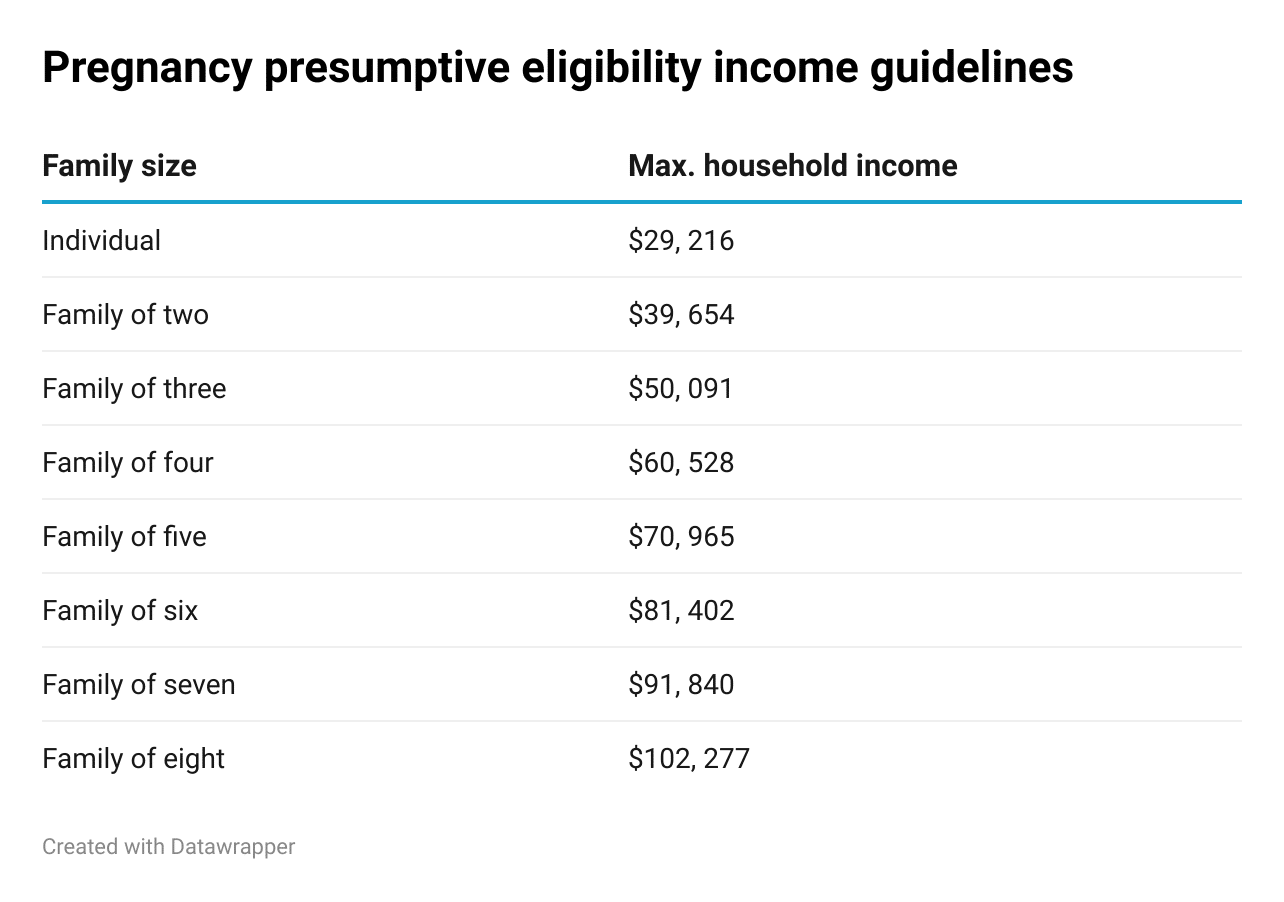Mississippi Today
Does Mississippi have any campaign finance rules? Legislative inaction, AG’s statements leave doubt
An attempt to reform Mississippi's lax, antiquated and jacked-up campaign finance laws went over like a lead balloon with lawmakers in this year's legislative session, with Republicans and Democrats alike gutting and deriding the reform bill before killing it.
So, that leaves the Magnolia State where it was, right? Weak laws. Little transparency for voters or enforcement for wrongdoers. Our government susceptible to the corrosive influence of secretive big-money special interests.
No. It's worse.
In her eleventh-hour hop onto the reform bandwagon, Attorney General Lynn Fitch, the state's top law officer, publicly opined, in writing, that she can't legally enforce the laws we do have. Oh, and that a $1,000 a year limit on out-of-state corporate donations to our politicians that everyone believed was law for at least the last 30 years is null and void under her new interpretation. She put that part of her press release in italics, for emphasis.
Fitch's last-minute joinder of calling for reform was seen as deflection of the flak she was receiving for not enforcing what many, including Lt. Gov. Delbert Hosemann, believed were flagrant violations of laws already on the books during last year's statewide elections. Millions of dollars in dark money poured into Mississippi campaigns and some candidates appeared to thumb their noses at what rules we do have.
Many chalked up Fitch's inaction on the complaints to not wanting to ruffle political feathers or sour relationships with potential donors for her own future political ambitions.
Despite Fitch lamenting, “We're allowing out-of-state influencers to determine and to pick who the candidates should be in our state … (and) We've got to have enforcement …,” a Mississippi Today analysis of her own campaign finance reports showed a majority of her campaign money came from out-of-state businesses: about $727,000 of $1.27 million.
Also, Fitch appears to receive lots of money from out-of-state interests to whom she awards AG office contracts. Records show she signed at least nine AG contracts last year with out-of-state law firms that had donated more than $300,000 to her campaign.
There has never been traction in the Mississippi Legislature for “pay-to-play” campaign donation prohibitions like other states have enacted.
Fitch, the only official with clear legal authority to investigate and enforce campaign finance violations, in her Feb. 6 press release appeared to throw in the towel on her office enforcing current laws: “Last year, we were asked to investigate several instances of clearly unethical and immoral campaign behavior. But we discovered they were not criminal under our current laws.”
So, what now?
Secretary of State Michael Watson helped lead the push for reform along with Hosemann and Senate Elections Chairman Jeremy England, R-Vancleave. The three have vowed to continue that push next legislative session.
In the meantime, Watson said he will continue to forward suspected violations to the AG's office, as the law prescribes. And, he said, he will continue to tell candidates there is (note the italics) a $1,000 a year limit on donations from both in-state and out-of-state corporations. He said this limit will remain in the written campaign finance guide the secretary of state's office has provided candidates for decades.
It's noteworthy that despite her Feb. 6 interpretation that no such limit applies to out-of-state corporations, Fitch appeared to think it did in August of 2023. After months of inaction on major campaign finance complaints, she announced then that she would investigate whether a PAC run by unsuccessful lieutenant governor candidate Chris McDaniel's campaign treasurer tried “exceeding corporate contribution limits” by shuffling out-of-state money through PACs.
“We are going to continue along the lines we have practiced for years and years,” Watson said. “… And, we are not going to stop, we are going to keep pushing for campaign finance reform.
“I don't have prosecutorial authority,” Watson said. “I can't prosecute so I have to have a willing and able attorney general working with me.”
Watson could hand off suspected campaign finance violations to local district attorneys. But Watson's office said that DAs typically would refer such misdemeanors down to county prosecutors, who don't have the resources to investigate or prosecute such violations. Plus, such complaints are often about districtwide or statewide candidates, often running in areas that extend beyond the jurisdiction of a county prosecutor or DA.
Watson said he believes current statute and definitions and decades of practice uphold the $1,000 limit and that other campaign finance laws — while in need of an overhaul — could still be enforced by the AG. But he did question her comments early this year.
“That was an interesting statement on her behalf, perhaps to dodge a little,” Watson said. “… If folks rely on her position, I do think it opens the door for outside dollars to flow in.”
Lawmakers have not only been loath to strengthen campaign finance laws and increase penalties, they've not wanted to provide offices such as the secretary of state or the Ethics Commission clear duties on collecting finance and other reports and enforcing deadlines. Such laws have been piecemealed and tweaked over many years in the name of reform, but now they often conflict, with one part of statute giving Ethics a responsibility, another saying the same responsibility belongs to the secretary of state's office.
Watson has said he's not not seeking more power for his office, but last year said, “… when people do not do their jobs, I will stand in the gap for Mississippians,” which appeared to be a dig at Fitch and a call for someone to be responsible for campaign finance enforcement.
Also, lawmakers have shown they not only don't want stronger campaign finance rules and enforcement, they don't want the citizenry to even be able to clearly see who donates to candidates and how much.
Most other states, including all those surrounding Mississippi, have searchable campaign finance databases. One can, for instance, type in the name of a donor and see all the campaigns to which the person donated and how much.
Setting up such data would not require Mississippi candidates learn any real computer skills — they could simply type in donation information into fields in a form on the secretary of state's website.
But lawmakers have shot down any effort to require such electronic campaign finance reports, including this year when Watson pitched it as part of his proposed reforms. Instead, Mississippi politicians can still file paper reports and hand-write them, which many still do with varying degrees of legibility. While Watson's office puts reports online, they are PDFs — pictures of pages that a citizen would have to go through page by page to tally donations. Cross referencing donors across all campaigns or even inspection to make sure the reports were filled out properly would be a daunting task.
While lawmakers shot down England's reform bill, with many voicing dismay at the inclusion of an online campaign finance filing requirement, the Legislature did approve $3.9 million for an overhaul of the secretary of state's computer system. Watson said he believes he can still move forward on developing such a filing system, although he said he would still require legislative approval to make electronic filing mandatory.
“The (request for proposals) for that system is going out in June, and it will have a platform for online campaign finance reporting,” Watson said. “… I think we will get there eventually. I think we can educate (lawmakers) on how simple it will be to use.”
Watson said he knows campaign finance reform and strengthening laws and penalties is a tough sell in the Legislature, but he believes change will come eventually. He noted that despite England's bill being shot down, “There were a large number of legislators who commented it was the right thing to do.”
He said eventually, campaign finance authority should be centralized, even if it's not under his office.
“I have no problem with that whatsoever,” Watson said recently. “That's what we told the Legislature — just centralize campaign finance under one roof. Mississippians deserve it. I don't want more authority, but I want the law to be followed.”
This article first appeared on Mississippi Today and is republished here under a Creative Commons license.
Mississippi Today
A new law to improve pregnancy outcomes took effect Monday. But how someone can receive timely prenatal care is still unclear.

Despite presumptive Medicaid eligibility for pregnant women going into effect Monday, it's still not clear how low-income pregnant women can get the timely prenatal care the law is supposed to make possible.
House Bill 539, which was signed into law by the governor on March 12, allows eligible, low-income pregnant women to receive immediate care covered by Medicaid while they wait for their application to be officially approved by the Division of Medicaid. Applications are supposed to take no longer than 45 days to process, though recent data shows nearly a third of applications in Mississippi took longer than that, bringing pregnant women well into their first trimester – when about 80% of miscarriages occur.
The policy, which Mississippi lawmakers hope will help mitigate the state's poor maternal and infant health metrics – some of the worst in the country – exists in 29 other states and Washington D.C.
Mississippi Today reached out to the Division of Medicaid in late May to request an interview over the next month with an agency official to discuss what the process of presumptive eligibility and timely care for pregnant women would look like once the law went into effect July 1. The reporter continued each week to reach out to spokesperson Matt Westerfield, who on June 10 said the agency was “exploring some options” for the interview.
On June 28, Westerfield said implementation is “complex” and that the agency would only communicate through “written exchanges.”
The agency on Tuesday issued a general statement about its commitment to implementing the policy – with no details about any outreach, public education or provider training to date.
“The Mississippi Division of Medicaid will continue to do the necessary due diligence to ensure providers interested in making presumptive eligibility determinations are qualified and trained,” Westerfield said in an email.
Not all providers who accept Medicaid will be automatically able to participate in presumptive eligibility, according to a brief explainer on Medicaid's website posted at the end of June.
Doctors and other qualifying providers must complete an application and undergo eligibility determination training, in addition to submitting a memorandum of understanding with the agency once approved. Then, a pregnant woman whose income falls below 194% of the federal poverty level – about $29,000 annually for an individual – can bring proof of income to the doctor and, if approved, receive prenatal care the same day.
Westerfield said in an emailed statement in May that the agency would communicate to the public which locations are participating in the program, but said that they were “still working on what that outreach will look like.”
As of Tuesday, it is still unclear which, if any, providers are participating and whether Medicaid has sent any communication about the steps they must take if they want to participate.

“Medicaid clearly knows that the intent of the Legislature is for pregnant women to get in to see their doctor as early as possible, and they are working to stand up this program that is now the law,” said House Medicaid Chair and the bill's author Missy McGee, a Republican from Hattiesburg. “As the author of this legislation, I will be closely monitoring the rollout of this new program and am optimistic that it will be done in a timely manner.”
The Legislature made the bill broad enough that the Division of Medicaid would have the freedom to implement it in whatever way it saw fit, McGee explained.
“ … The Legislature's job is to create the policy. Now that it is law, it is Medicaid's job to implement it.”
Mississippi Today reached out to University of Mississippi Medical Center – Mississippi's largest Medicaid provider – to determine what, if any, communication it has received about how presumptive eligibility will work.
“We are still checking into the process for this, but don't have any comment at this time,” a hospital spokesperson told Mississippi Today on Tuesday.
In March, the number of Mississippi Medicaid applications that took more than 45 days to be processed was 29%, according to data from the Centers for Medicare and Medicaid Services, due to “unwinding.” State Medicaid divisions across the country began reviewing their rolls last year for the first time in three years after the end of COVID-19 restrictions that prevented them from unenrolling beneficiaries, and Mississippi at times had a significant application backlog.
Without presumptive eligibility, pregnant women are forced to pay out of pocket or go without care in this interim period. Early prenatal care has been proven to mitigate a number of pregnancy-related problems including hypertension – the leading cause of maternal mortality in Mississippi and across the country – and preterm births, in which Mississippi leads the nation.
The state received more than $2 million of federal funds and an additional $602,000 in state money to implement the program, according to the 2024 Medicaid appropriation bill.
Advocates of the policy have said the program pays for itself when compared to how much it costs the state to care for one infant's prolonged stay in a neonatal intensive care unit, which can easily top $1 million, according to a study published in the American Medical Association Journal of Ethics.
How to know if you qualify
Anyone who is pregnant and makes at or below 194% of the federal poverty level qualifies for Medicaid and for presumptive eligibility. These individuals can start receiving care a soon as they find out they're pregnant by showing proof of monthly income to a doctor at a qualifying location.
While it's not known which providers, if any, have chosen to participate so far, Mississippi Today will continue to monitor the Division of Medicaid's implementation of the policy and report on qualifying providers as they sign up.

This article first appeared on Mississippi Today and is republished here under a Creative Commons license.
Did you miss our previous article…
https://www.biloxinewsevents.com/?p=372033
Mississippi Today
Dau Mabil’s brother goes back to court to get independent autopsy started
The brother of Dau Mabil, the Jackson man whose body was recovered from the Pearl River three weeks after he disappeared, is asking a judge to enforce an order to allow an independent autopsy to proceed.
The state's autopsy, released late last month, determined death by drowning by unknown cause.
In a Monday court filing, Bul Mabil of Texas argues that his brother's widow, Karissa Bowley, is preventing the second autopsy by vetoing his choice of a qualified forensic pathologist, Dr. Matthias Okoye of Nebraska.
“This Court did not authorize Karissa Bowley to select or veto the pathologist to conduct the independent autopsy of Dau Garang Mabil,” Lisa Ross, Bul Mabil's attorney, wrote in the order.
The court set a requirement for the pathologist to be at least as qualified as pathologists who conduct autopsies for the State of Mississippi along with having certain degrees or certifications. Ross argues that Okoye meets the requirements set in the court order.
Okoye is director of the Nebraska Institute of Forensic Sciences, a nonprofit organization that operates the forensic pathologist division of the coroner's office for several counties in the state.
He has investigated and certified over 15,000 deaths as a deputy and chief medical examiner and a coroner's pathologist and has performed over 12,000 autopsies, according to his curriculum vitae included in court records.
Spencer Bowley wrote in a Sunday email that his sister disagrees with Bul Mabil's choice of Okoye, who Bowley noted was previously sued for providing false information in an autopsy report.
“Dau deserves nothing less than to have all answerable questions answered regarding his death,” he wrote. “We will continue seeking to agree on a pathologist to pursue truth, rather than any individual person or organization's agenda.”
More than a decade ago, a daycare provider sued Okoye, who authored the report used to charge her with felony child abuse for the death of a 6-week-old. The charges were later dropped.
Okoye ruled the infant died from homicide from blunt force trauma to the head and asphyxiation. Pathologists hired by the plaintiff found the infant's death was due to sudden infant death syndrome.
In 2014, the Nebraska Supreme Court ruled in the woman's malicious prosecution lawsuit by reversing the lower court's order to grant Okoye and his organization summary judgment, finding “differing reasonable inferences (that) could be drawn as to whether Okoye knowingly provided false or misleading information in his autopsy report.”
Another forensic pathologist offered by Bul Mabil is Dr. Frank Peretti of Arkansas, but Ross wrote in the filing that he declined to conduct the autopsy because of a potential conflict of interest.
Bowley has offered the names of four forensic pathologists, according to a Friday email from her attorney John David Sanford included in court records.
Okoye has also conducted an independent autopsy for at least one other Mississippi resident: Lee Demond Smith, who died in the Harrison County Jail, according to an affidavit contained in the court records. His ruling disagreed with the county pathologist's ruling.
As of Tuesday afternoon, a court hearing had not been scheduled to consider the motion.
The delay comes a week and a half after the Bowleys released the state's autopsy results.
That day, Ross began asking the Department of Public Safety's attorney if Mabil's body was ready to be released. She received confirmation about a week later.
As part of requirements for the autopsy, the court set a 30-day window for the autopsy to be conducted.
Now that Capitol Police have finished its investigation, Ross is asking the court to act so the autopsy can be done within 30 days of June 27, which is when she received confirmation.
In May, Bowley agreed to allow a second autopsy, and Hinds County Chancery Judge Dewayne Thomas wrote that it would be paid for at Bul Mabil's “direction and expense.”
This article first appeared on Mississippi Today and is republished here under a Creative Commons license.
Mississippi Today
Federal judge blocks Mississippi online age verification law
A federal judge has issued an injunction halting a Mississippi law requiring online platforms to verify the ages of users.
Mississippi lawmakers, parroting measures passed by legislatures in several other states, passed House Bill 1126 this year, saying it would protect children from explicit online content. The law was set to take effect Monday, but the tech industry group NetChoice sued the state in June, claiming it would unconstitutionally limit adults' free speech and privacy.
U.S. District Judge Sul Ozerden granted NetChoice's request for a preliminary injunction halting the law while the case moves forward. He said the plaintiff's claim shows “a substantial likelihood of success on the merits of its claim” of the unconstitutionality of the law.
NetChoice is fighting similar laws in other states and has secured several similar injunctions.
“An unconstitutional law will protect no one,”Chris Marchese, director of the NetChoice Litigation Center, said in a statement. “We're pleased the court sided with the First Amendment and stopped Mississippi's law from censoring online speech, limiting access to lawful information and undermining user privacy and security as our case proceeds. We look forward to seeing the law struck down permanently.
“If HB 1126 ultimately takes effect, mandating age and identity verification for digital services will undermine privacy and stifle the free exchange of ideas. Mississippi also commandeers websites to censor broad categories of protected speech, blocking access to important educational resources. Mississippians have a First Amendment right to access lawful information online free from government censorship.”
The Mississippi law, authored by Rep. Jill Ford, R-Madison, is called the “Walker Montgomery Protecting Children Online Act,” named after a Mississippi teen who reportedly committed suicide after an overseas online predator threatened to blackmail him.
This article first appeared on Mississippi Today and is republished here under a Creative Commons license.
-
Mississippi News6 days ago
Pearl under boil water notice due to E. coli
-
Our Mississippi Home7 days ago
Let’s Go Fishing! | Our Mississippi Home
-
Our Mississippi Home6 days ago
Mississippi State’s UTC Staff Win Seven Emmy Awards
-
Mississippi Business6 days ago
Communities qualify for Welcome Home Mississippi recertification
-
Mississippi News6 days ago
Tropical wave has a 70 percent chance of developing, National Hurricane Center says
-
Local News7 days ago
Baby cousin with cancer inspires girls to sew hospital gowns for sick kids across U.S. and Africa
-
Our Mississippi Home6 days ago
Celebrating the 15th Season of Festival South
-
SuperTalk FM6 days ago
Move over 662, a new area code is coming to north Mississippi







































